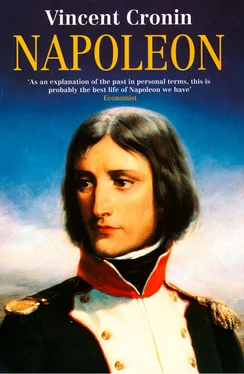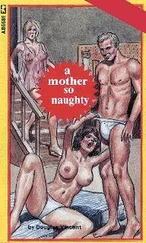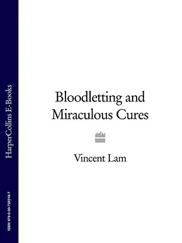Vincent Cronin - Napoleon
Здесь есть возможность читать онлайн «Vincent Cronin - Napoleon» — ознакомительный отрывок электронной книги совершенно бесплатно, а после прочтения отрывка купить полную версию. В некоторых случаях можно слушать аудио, скачать через торрент в формате fb2 и присутствует краткое содержание. Жанр: unrecognised, на английском языке. Описание произведения, (предисловие) а так же отзывы посетителей доступны на портале библиотеки ЛибКат.
- Название:Napoleon
- Автор:
- Жанр:
- Год:неизвестен
- ISBN:нет данных
- Рейтинг книги:3 / 5. Голосов: 1
-
Избранное:Добавить в избранное
- Отзывы:
-
Ваша оценка:
- 60
- 1
- 2
- 3
- 4
- 5
Napoleon: краткое содержание, описание и аннотация
Предлагаем к чтению аннотацию, описание, краткое содержание или предисловие (зависит от того, что написал сам автор книги «Napoleon»). Если вы не нашли необходимую информацию о книге — напишите в комментариях, мы постараемся отыскать её.
Napoleon — читать онлайн ознакомительный отрывок
Ниже представлен текст книги, разбитый по страницам. Система сохранения места последней прочитанной страницы, позволяет с удобством читать онлайн бесплатно книгу «Napoleon», без необходимости каждый раз заново искать на чём Вы остановились. Поставьте закладку, и сможете в любой момент перейти на страницу, на которой закончили чтение.
Интервал:
Закладка:
Despite this good report, Napoleon was not passed in 1783 for entrance to the Ecole Militaire, the next stage in his schooling whether he entered the army or the navy. Evidently he was considered too young – he was just fourteen – but the news came as a blow, for Carlo had been counting on Napoleon graduating that year, so leaving his scholarship free for Lucciano, now eight years old.
Things had begun to go badly for Carlo Buonaparte. His health had broken. He was thin and drawn and blotchy in the face, no one knew why. He now had seven children, and after the birth of the last Letizia had contracted puerperal fever which had left her with a stiffness down her left side. It was to give his wife the benefit of the waters at Bourbonne that Carlo had visited France, stopping to see Napoleon on the way. After their initial burst of generosity the French were reducing school grants and subsidies, so that Carlo was finding it difficult to make ends meet. All this became evident to Napoleon. Already showing a young man’s responsibility, he looked for some way of graduating from Brienne and leaving his place free for Lucciano.
In 1783 England and France, putting an end to their six-year naval war, signed at Versailles a treaty of peace. It is probable, though not certain, that Napoleon now conceived the idea of entering the English naval college at Portsmouth as a cadet. Service under another flag was then quite usual: the great French strategist, Maréchal de Saxe, had been of German birth and, more modestly, Letizia’s Swiss stepfather had served the Genoese. In La Nouvelle Héloïse by Rousseau, one of Napoleon’s favourite authors, did not Saint-Preux sail with Anson’s squadron? Almost certainly Napoleon considered it a temporary expedient to ease his father’s financial difficulties. At any rate, with help from a master, Napoleon managed to write a letter to the Admiralty, asking for a place in the English naval college. He showed it to an English boy in the school, a baronet’s son named Lawley, who was later to become Lord Wenlock. ‘The difficulty I’m afraid will be my religion.’ ‘You young rascal!’ Lawley replied. ‘I don’t believe you have any.’ ‘But my family have. My mother’s people, the Ramolinos, are very rigid. I should be disinherited if I showed any signs of becoming a heretic.’
Napoleon posted his letter. It arrived, but whether he got a reply is unknown. Anyway, he did not go to England and next summer he was passed for the Ecole Militaire. Napoleon must have been pleased to give his father the news and to welcome him in June to Brienne, with young Lucciano, who entered the school now, though Napoleon would not be leaving until autumn. Carlo stayed a day, then went on to Saint-Cyr to place seven-year-old Marie Anne in the girls’ school there, she too on a State grant; to Paris in order to consult a doctor; and to Versailles, where he pleaded with Calonne in the Ministry of Finance for payment of promised subsidies for draining the salt-marshes near Ajaccio.
Carlo had yet another worry. Joseph, now aged sixteen and having scooped all the prizes at Autun, announced that he did not wish to enter Aix seminary. Evidently he felt no call to the priesthood. Lack of such a call did not deter many in this free-thinking age from taking orders, and it speaks well for the Buonaparte upbringing that Joseph should have acted as he did. Joseph and Napoleon wrote to each other, and perhaps it was the younger boy’s Cornelian descriptions of military life which made Joseph announce that he too wanted to become an officer.
Napoleon received this news from his father in June. In Corsica the eldest son enjoyed exceptional respect; his decisions were normally beyond criticism by juniors. Napoleon, however, felt no inhibitions here; his sense of responsibility came to the fore and he wrote to his uncle, Nicolò Paravicini, one of the few letters preserved from his schooldays. It is in French and begins:
My dear uncle,
I am writing to let you know that my dear father came to Brienne on his way to Paris to take Marie Anne to Saint-Cyr, and to try to recover his health … He left Lucciano here, nine years old, three foot eleven and a half inches tall … He is in good health, chubby, lively and scatterbrained, and he has made a good first impression.
Napoleon then turns to Joseph who, he says, now wishes to serve the King. ‘In this he is quite wrong for several reasons. He has been educated for the Church. It is late to go back on his word. My Lord Bishop of Autun would have given him an important living and he was sure of becoming Bishop. What advantage for the family! My Lord of Autun has done everything possible to make him persevere, and promised that he would not regret it. No good. He’s made up his mind.’ Having said as much, Napoleon then feels he may be doing Joseph an injustice. ‘If he has a real taste for this kind of life, the finest of all careers, then I praise him: if the great mover of human affairs has given him – like me – a definite inclination for military service.’ In the margin, reflecting perhaps on his father’s drawn, ill-looking face and on an officer’s slender pay, Napoleon adds that he hopes all the same Joseph will follow the Church career for which his talents suit him and be ‘the support of our family’.
The letter is interesting because it shows Napoleon taking the lead yet trying to see both sides of the problem. His doubts about Joseph’s military aptitude were eventually to be proved correct; for the present an unexpected event was soon to take Joseph back to Corsica.
In October 1784 the fifteen-year-old Napoleon prepared to leave Brienne. Unlike Joseph, he had won no prizes. But every year he had done well enough to be chosen to recite or answer questions on the platform at Speech Day. His best subject was mathematics, his second best geography. His weakest point was spelling. He wrote French by ear – la vaillance became, in one of his letters home, l’avallance – and all his life was to spell even simple words incorrectly.
On 17 October, his hair in a pigtail, powdered and tied with a ribbon, Napoleon boarded the mail coach at Brienne with Father Berton. At Nogent they transferred to the inexpensive passenger barge, drawn by four horses, which took them slowly down the Seine. On the afternoon of the 21st they arrived in Paris.
Here Napoleon felt very much the provincial; he was seen ‘gaping in all directions with just the expression to attract a pick-pocket’. And well he might, for Paris was a city of great wealth and also of great poverty. Noblemen’s carriages raced through narrow streets preceded by mastiffs to clear the rabble; their wheels sent the thick mud flying. There were smart shops selling osprey feathers and gloves scented with jasmine, but also many beggars thankful for a sou. One new feature was the street-lamps, suspended on ropes, which at dusk were lowered, lit and raised again: they were called lanternes.
The first thing Napoleon did in Paris was to buy a book. His choice fell on Gil Blas , a novel about a penniless Spanish boy who rises to become secretary to the Prime Minister. Father Berton took him to the church of Saint-Germain to say a prayer for their safe arrival, and then to the Ecole Militaire, Gabriel’s splendid building, its façade dominated by eight Corinthian columns, a dome and a clock framed with garlands. It had been open only thirteen years and was one of the sights of Paris.
Napoleon found everything very lavish. The classrooms were papered in blue with gold fleurs-de-lys; there were curtains at the windows and doors. His dormitory was heated by a faïence stove, his jug and wash-basin were of pewter, his bed hung with curtains of Alençon linen. He had a more elaborate blue uniform, with a red collar and silver braid, and he wore white gloves. The meals were delicious, and at dinner three desserts were served. The masters were picked men, highly paid. The cost to France of a subsidized cadet like Napoleon was 4,282 livres a year.
Читать дальшеИнтервал:
Закладка:
Похожие книги на «Napoleon»
Представляем Вашему вниманию похожие книги на «Napoleon» списком для выбора. Мы отобрали схожую по названию и смыслу литературу в надежде предоставить читателям больше вариантов отыскать новые, интересные, ещё непрочитанные произведения.
Обсуждение, отзывы о книге «Napoleon» и просто собственные мнения читателей. Оставьте ваши комментарии, напишите, что Вы думаете о произведении, его смысле или главных героях. Укажите что конкретно понравилось, а что нет, и почему Вы так считаете.












